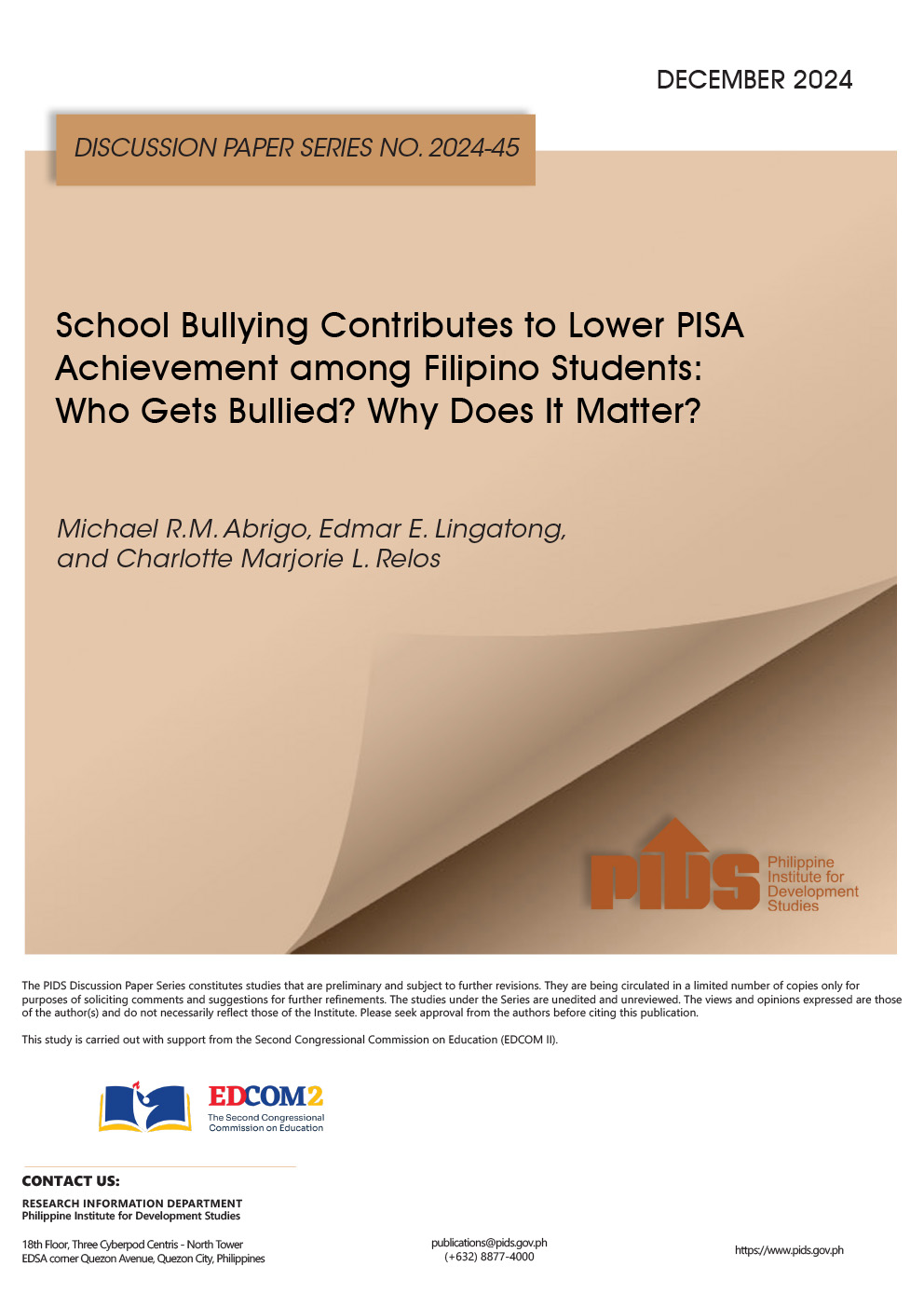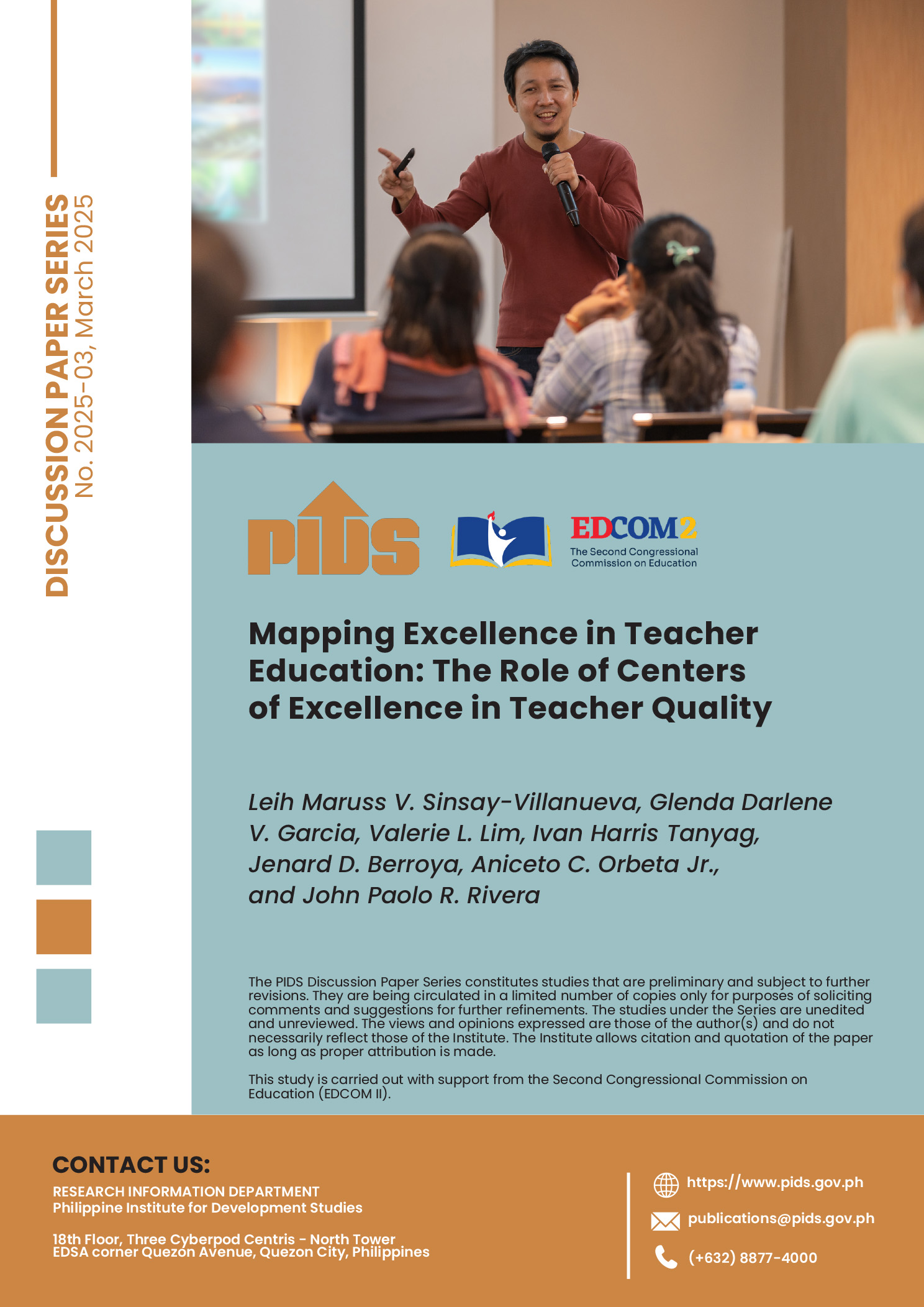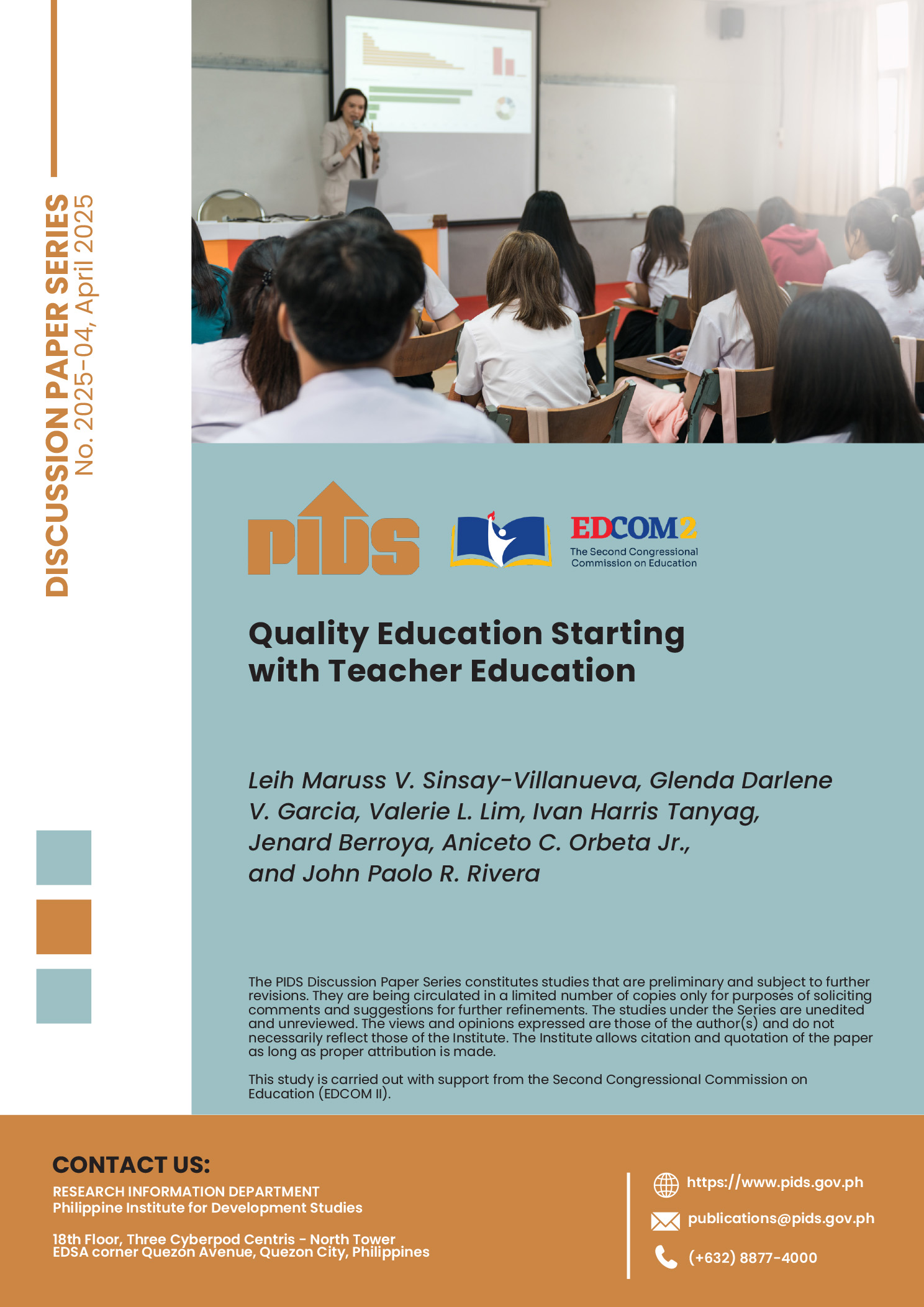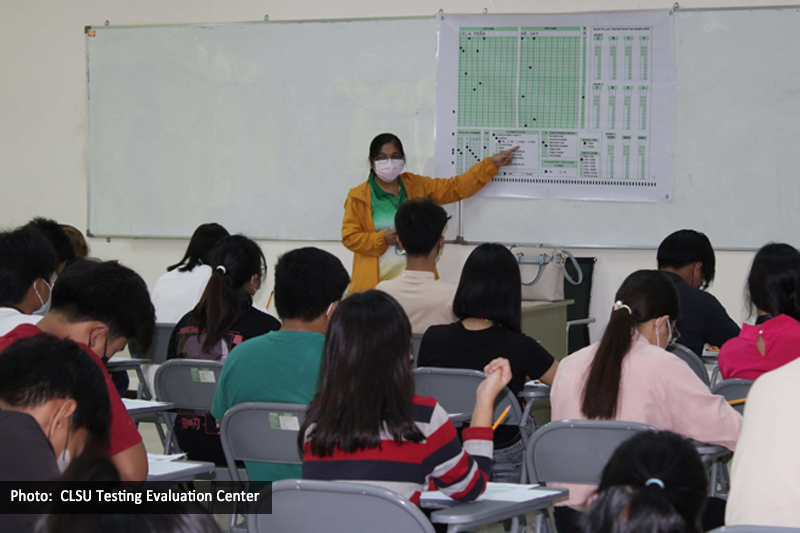The Commission on Higher Education should enforce "more vigorously" its policy of closing existing programs of state colleges and universities (SUCs) that perform under par year after year in Professional Board Examinations (PBEs).
This is one of the recommendations of "Review and Assessment of Programs Offered by State Universities and Colleges" co-written by Dr. Rosario Manasan and Danileen Kristel Parel, senior research fellow and supervising research specialist, respectively, of state think tank Philippine Institute for Development Studies (PIDS).
"It is worrisome that there is a preponderance of universities and colleges with zero passing rate in many professional board exams (PBEs) from 2004 to 2011," the study noted. "Furthermore, closer scrutiny of SUCs` passing rate in PBEs indicate that a good number of them post passing rates that are well below the national average passing rate year after year."
Degrees that have poor PBE performance are agriculture, accountancy, criminology, electrical engineering, electronics engineering, geodetic engineering, social work, elementary and secondary education, library science, forestry, and environmental planning. Data available show that the median passing rate for 38 PBEs for 2004-2011 ranged from 40 to 48 percent. Only 10 out of 38 PBEs had average passing rates above 60 percent and only 6 had passing rates above 70 percent.
The study noted that the SUCs offer "popular" courses even if these are beyond their core mandate. "Given the broad mandates of SUCs, it is not surprising that there is substantial duplication in their program offerings relative to those of private higher education institutions (PHEIs) and other SUCs in the same region where they operate."
Program duplication may be considered a problem for a number of reasons. "One, the number of programs offered by SUCs has been found empirically to tend to increase per student cost of SUCs. Two, when SUCs offer programs that PHEIs traditionally offer, PHEIs are effectively crowded out because the tuition fees charged by SUCs is significantly lower than that of PHEIs." PHEI officials note the seeming unfair competition. While the CHED strictly enforces its policies, standards and guidelines, some SUCs are allowed to offer courses without the requisite facilities and qualified faculty.
While some SUC officials hold that the poor PBE performance are currently being addressed by conducting review classes and pre-board examinations, the study noted that these measures will improve the passing rate but will not necessarily improve the quality of instruction. Faculty development and upgrading of facilities are argued to be more effective in improving overall performance.
The study also recommends the following: (i) CHED should ensure that SUCs` program offerings comply with policies, standards, and guidelines of the commission; (ii) CHED should weigh the advantages and disadvantages of centralization over decentralization with respect to the monitoring of SUCs; (iii) the CHED regional director should become a regular member of the SUC Board; and (iv) the normative funding formula should be adjusted so that SUCs do not get an additional subsidy from the national government for the additional enrollment resulting from their offering popular programs. SUCs may be allowed to offer popular programs provided they meet CHED standards and shoulder the full cost of offering those programs.
You may download the full study from this link: http://dirp3.pids.gov.ph/webportal/CDN/PUBLICATIONS/pidsdps1429.pdf
This is one of the recommendations of "Review and Assessment of Programs Offered by State Universities and Colleges" co-written by Dr. Rosario Manasan and Danileen Kristel Parel, senior research fellow and supervising research specialist, respectively, of state think tank Philippine Institute for Development Studies (PIDS).
"It is worrisome that there is a preponderance of universities and colleges with zero passing rate in many professional board exams (PBEs) from 2004 to 2011," the study noted. "Furthermore, closer scrutiny of SUCs` passing rate in PBEs indicate that a good number of them post passing rates that are well below the national average passing rate year after year."
Degrees that have poor PBE performance are agriculture, accountancy, criminology, electrical engineering, electronics engineering, geodetic engineering, social work, elementary and secondary education, library science, forestry, and environmental planning. Data available show that the median passing rate for 38 PBEs for 2004-2011 ranged from 40 to 48 percent. Only 10 out of 38 PBEs had average passing rates above 60 percent and only 6 had passing rates above 70 percent.
The study noted that the SUCs offer "popular" courses even if these are beyond their core mandate. "Given the broad mandates of SUCs, it is not surprising that there is substantial duplication in their program offerings relative to those of private higher education institutions (PHEIs) and other SUCs in the same region where they operate."
Program duplication may be considered a problem for a number of reasons. "One, the number of programs offered by SUCs has been found empirically to tend to increase per student cost of SUCs. Two, when SUCs offer programs that PHEIs traditionally offer, PHEIs are effectively crowded out because the tuition fees charged by SUCs is significantly lower than that of PHEIs." PHEI officials note the seeming unfair competition. While the CHED strictly enforces its policies, standards and guidelines, some SUCs are allowed to offer courses without the requisite facilities and qualified faculty.
While some SUC officials hold that the poor PBE performance are currently being addressed by conducting review classes and pre-board examinations, the study noted that these measures will improve the passing rate but will not necessarily improve the quality of instruction. Faculty development and upgrading of facilities are argued to be more effective in improving overall performance.
The study also recommends the following: (i) CHED should ensure that SUCs` program offerings comply with policies, standards, and guidelines of the commission; (ii) CHED should weigh the advantages and disadvantages of centralization over decentralization with respect to the monitoring of SUCs; (iii) the CHED regional director should become a regular member of the SUC Board; and (iv) the normative funding formula should be adjusted so that SUCs do not get an additional subsidy from the national government for the additional enrollment resulting from their offering popular programs. SUCs may be allowed to offer popular programs provided they meet CHED standards and shoulder the full cost of offering those programs.
You may download the full study from this link: http://dirp3.pids.gov.ph/webportal/CDN/PUBLICATIONS/pidsdps1429.pdf












